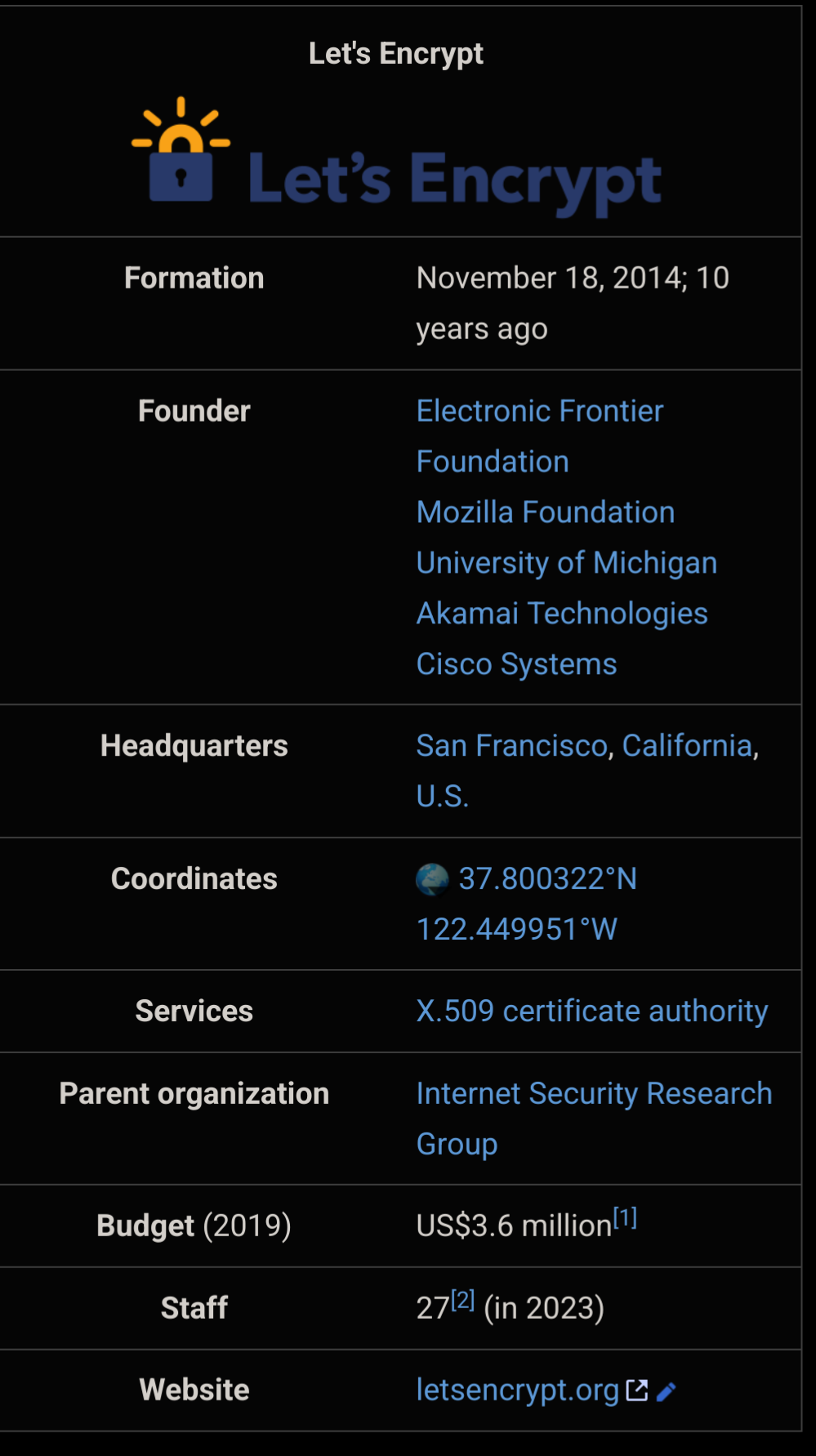- cross-posted to:
- cybersecurity
- [email protected]
- [email protected]
- cross-posted to:
- cybersecurity
- [email protected]
- [email protected]
Happy birthday to Let’s Encrypt !
Huge thanks to everyone involved in making HTTPS available to everyone for free !

Happy birthday to Let’s Encrypt !
Huge thanks to everyone involved in making HTTPS available to everyone for free !

Sleeping too well lately? Consider this:
If LetsEncrypt were to suffer a few weeks outage, how much of the internet would break?
Shouldn’t be too difficult to swap it out for ZeroSSL. You’d need to remember to update CAA records though.
If you have a fully automated setup. Youll have 30 days to mitigate the fallout.
It won’t be that simple.
For starters, you’re assuming t-zero response. It’ll likely be a week before people worry enough that LE isn’t returning before they act. Then they have to find someone else for, possibly, the hundreds or thousands of certs they are responsible for. Set up processes with them. Hope that this new provide is able to cope with the massive, MASSIVE surge in demand without falling over themselves.
And that’s assuming your company knows all its certs. That they haven’t changed staff and lost knowledge, or outsourced IT (in which case they provider is likely staggering under the weight of all their clients demanding instant attention) and all that goes with that. Automation is actually bad in this situation because people tend to forget how stuff was done until it breaks. It’s very likely that many certs will simply expire because they were forgotten about and the first thing some companies knows is when customers start complaining.
LetsEncrypt is genuinely brilliant, but we’ve all added a massive single point of failure into our systems by adopting it.
(Yeah, I’ve written a few disaster plans in my time. Why do you ask?)
Piggybacking off this comment because I completely agree with it.
Did we not learn anything from CrowdStrike? If a comparatively simple fix was able to wipe out half the world, how would something that requires an active choice (where to get certs from) not completely cripple all of our infrastructure?